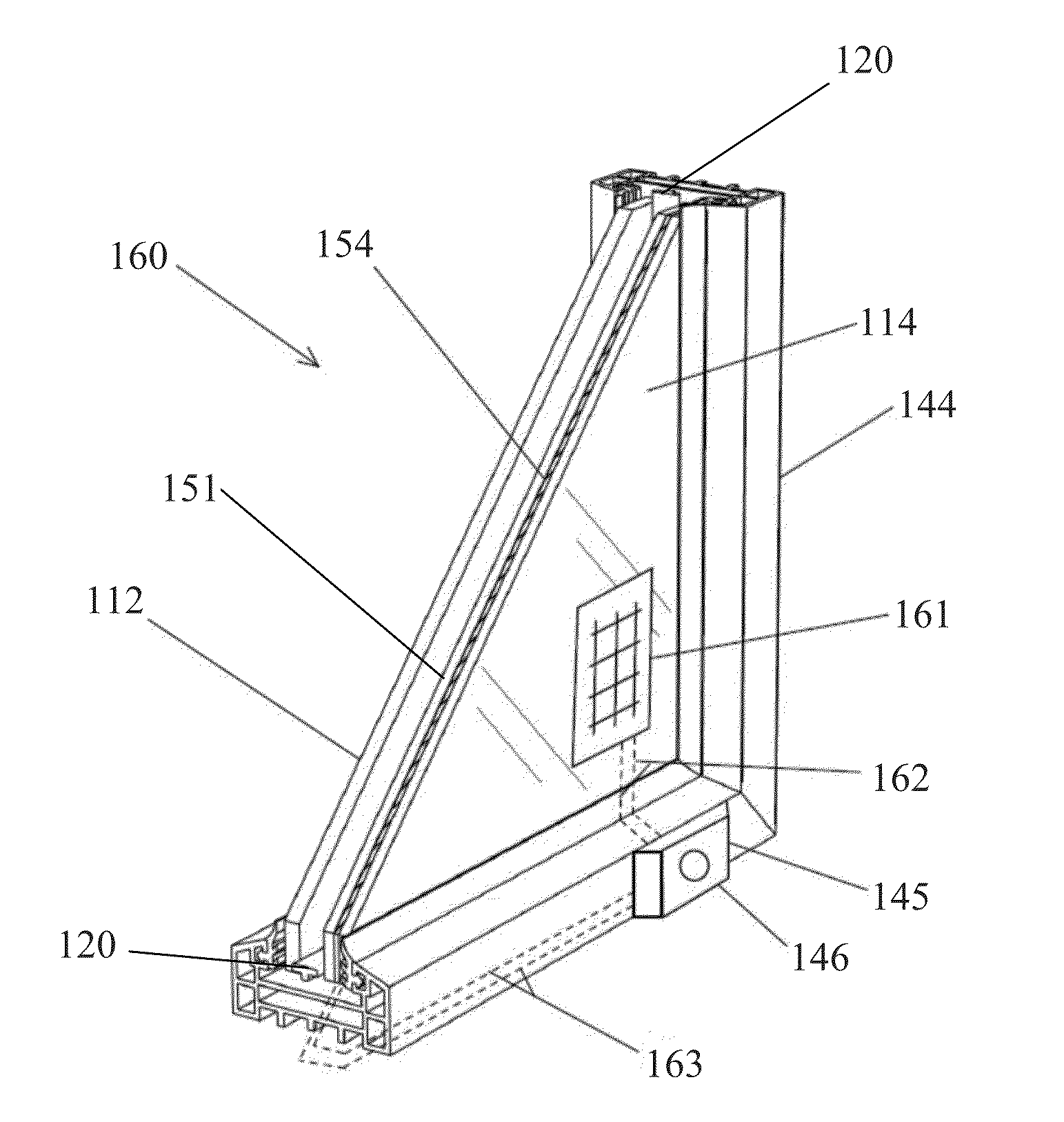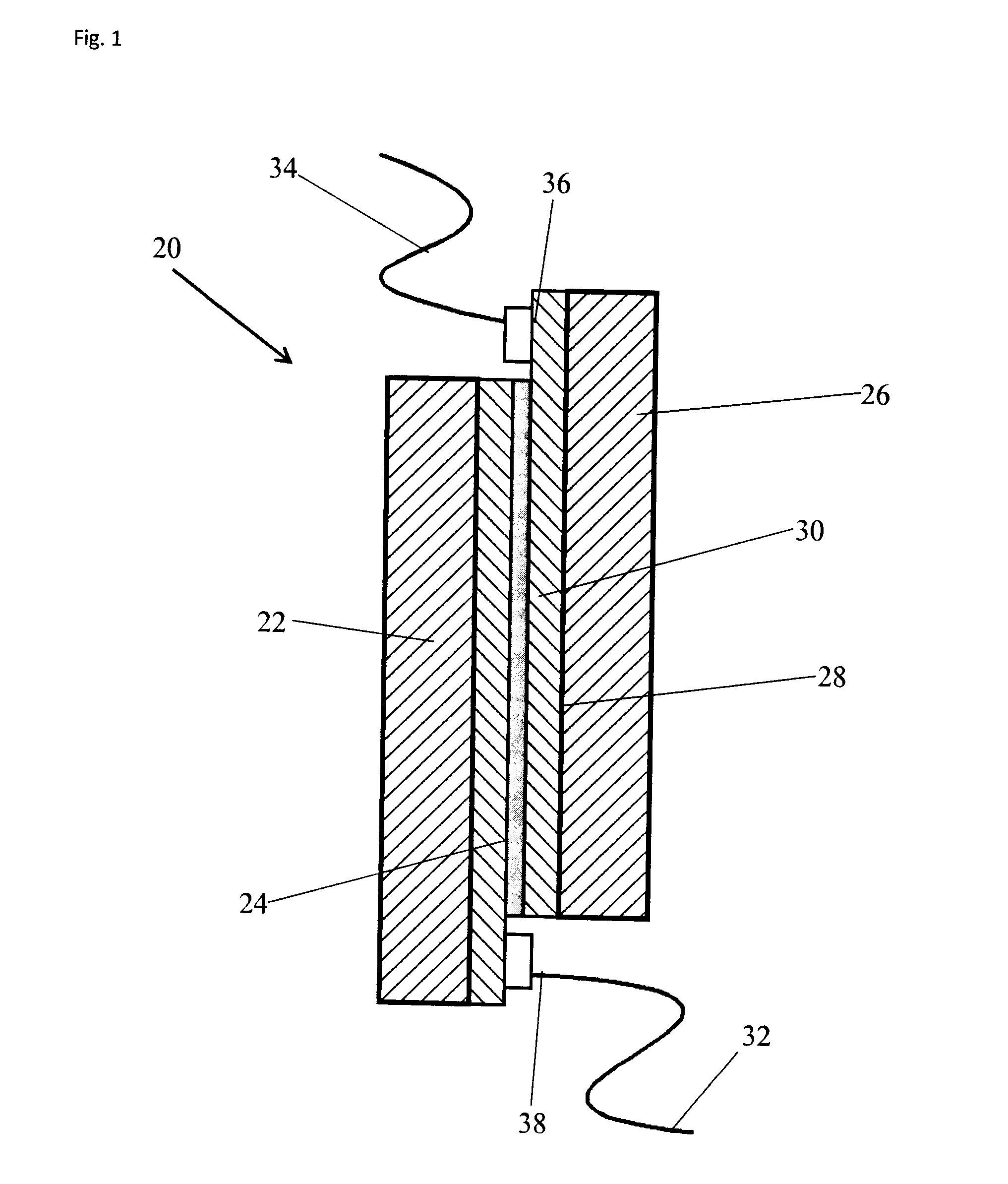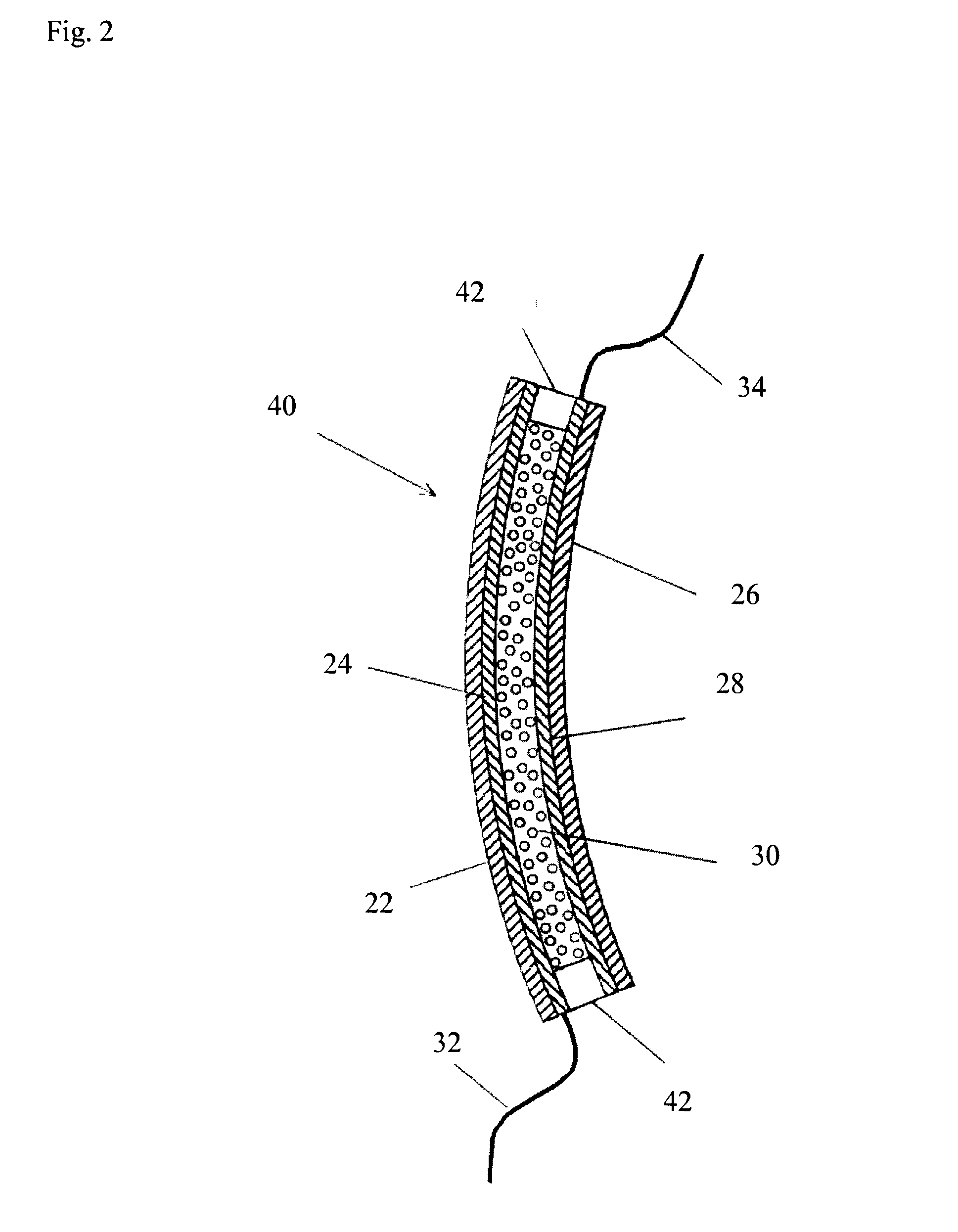Variable transmittance optical devices
a technology of optical filters and transmittance, applied in static indicating devices, instruments, conductive pattern formation, etc., can solve the problems of high voltage or bulky power sources that are not suitable for retrofitting wiring, and the power demand may increase with the size of the device, so as to reduce solar heat gain and reduce cooling loads in buildings. , the effect of reducing power demands
- Summary
- Abstract
- Description
- Claims
- Application Information
AI Technical Summary
Benefits of technology
Problems solved by technology
Method used
Image
Examples
example 1
Preparation of Selected Hybrid P / E Compounds
S001 and S002 were Prepared as Described in U.S. Pat. No. 7,777,055.
Synthesis of S042
[0199]
Synthesis of 3-bromo-2,5-bis(4-(tert-butyl)phenyl)thiophene: (30)
[0200]Sodium carbonate monohydrate (58.0 g, 468 mmol) was dissolved in water (500 mL) and a solution of 4-(tert-butyl)-phenylboronic acid (40.0 g) and 2,3,5-tribromothiophene (30.0 g, 94 mmol) in THF (500 mL) was added, and deoxygenated by bubbling with argon. Pd(PPh3)4 (5.0 g, 4.30 mmol) was added and the mixture refluxed for 24 h. The mixture was cooled and the aqueous phase separated and extracted with EtOAc. Organic fractions were combined washed with water (500 mL) and dried over MgSO4. The solvent was evaporated and the crude product washed in MeOH, filtered and dried overnight to afford a light yellow, powdery solid (35.46 g, 89%).
Synthesis of S042
(3,3′-(perfluorocyclopent-1-ene-1,2-diyl)bis(2,5-bis(4-(tert-butyl)phenyl)thiophene)
example 2
Preparation of Variable Transmittance Optical Filters
[0208]Method A:
[0209]An ITO-coated PET substrate having a thickness of 7 mil (˜178 microns) and a sheet resistance of 50 ohms / square (OC50, made by CP Films) is cut into two 15 cm×15 cm sheets. The substrate may be cleaned before use, and is temporarily laminated to glass plates to facilitate handling. Steel spacers are positioned at the perimeter of the PET, to set the gap for the final pressed device (from 20-70 microns). A volume of switching material (below, heated to facilitate dispensing), is placed on the PET to completely fill the gap between the PET sheets when the device is pressed. A second piece of glass-backed PET is placed on top, so that the PET sheets overlap such that there is some ITO coating exposed, to act as the external electrical contacts. The sandwich (glass-PET-switching material-PET-glass) is placed in the center of a press platens (heated to 45° C.). Pressure greater than 160 psi is applied to the filter...
example 3
Preparation of the Switching Material
[0212]The switching material was formulated to demonstrate how the components of the formulation can be varied. These formulations can be readily adapted to a desired application by a worker skilled in the art, by replacing the listed ingredients with one or more other ingredients in accordance with embodiments of the present invention. Table 1 sets out formulations for switching material that may be used in a device according to various embodiments of the invention. Compounds that may be used in the formulations include those according to Formulae IA / IB, and those illustrated herein. In some examples, the compound used in a formulation may be S001, or a derivative thereof having a functional groups on one or more of the four peripheral thiophene rings; or S002, or a derivative thereof having a functional group on one or more of the peripheral phenyl rings; or S042, or a derivative thereof having another functional group on one or more of the per...
PUM
| Property | Measurement | Unit |
|---|---|---|
| wavelengths | aaaaa | aaaaa |
| wavelengths | aaaaa | aaaaa |
| wavelengths | aaaaa | aaaaa |
Abstract
Description
Claims
Application Information
 Login to View More
Login to View More - R&D
- Intellectual Property
- Life Sciences
- Materials
- Tech Scout
- Unparalleled Data Quality
- Higher Quality Content
- 60% Fewer Hallucinations
Browse by: Latest US Patents, China's latest patents, Technical Efficacy Thesaurus, Application Domain, Technology Topic, Popular Technical Reports.
© 2025 PatSnap. All rights reserved.Legal|Privacy policy|Modern Slavery Act Transparency Statement|Sitemap|About US| Contact US: help@patsnap.com



